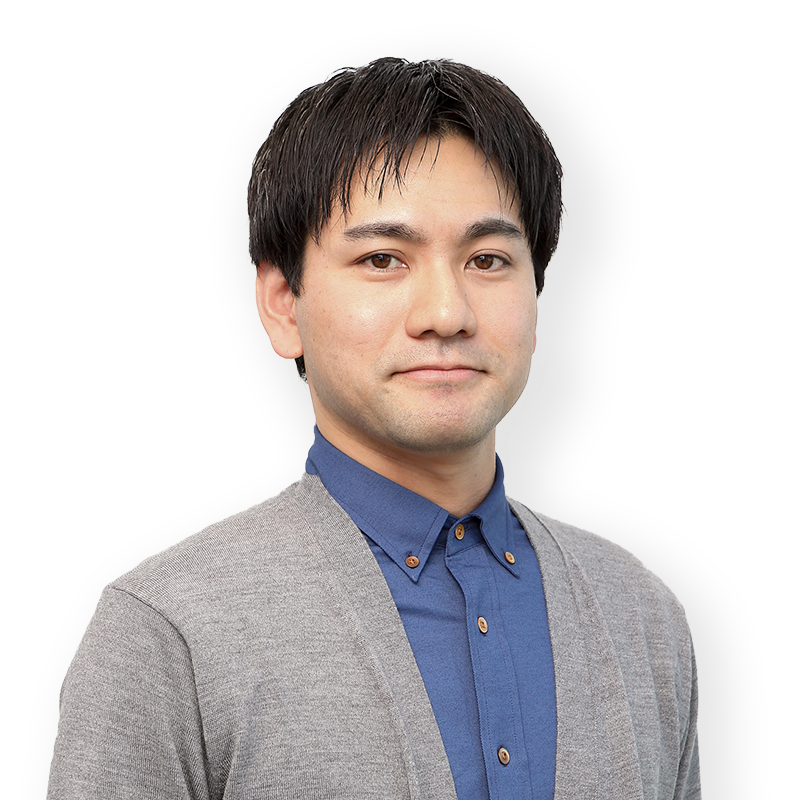Motivation through the pride of supporting game operations.
As a server programmer, I work on the implementation of content, maintenance and operation of servers and maintenance support for the smartphone game "Phantasy Star Online 2 (PSO2) es." Server-side implementation happens early on, so if my schedule is delayed, it affects the subsequent implementation of the client, the game designer's data settings and the QA schedule.
Often, it is necessary to implement complicated logic processing by storing important data related to items and in-game payments, so it is essential that we implement these things carefully and quickly. I need to ensure both speed and quality and there is no room for compromise. From design to requirements definitions an the identification of tasks all the way to implementation, the responsibility is great, but I feel that this is a job worth doing because I have a great deal of discretion in my work.
The success of the "PSO2 es" project made me confident in my work.
"PSO2 es" is linked to the online version of "PSO2", so there's a lot of data to handle and the specifications were very complicated. In order to make sure users could play more content, we implemented a lot of functions on a tight schedule. This resulted in more sales, and in its third year of operation I won an in-house award for this successful project. It really gave me a lot of confidence to see that my diligent development work led to a real achievement.

A company that gives you a chance if you ask for one and monitors your growth.
SEGA is a company enthusiastic about employee training. It will give you a chance if you ask for one and help you grow. We also hold frequent in-house study sessions, and once a year we hold a large-scale conference called the "SEGA Developers Conference," aimed at sharing in-house technology among the entire SEGA Group. Monthly study sessions sponsored by the Development Technology Department allow us to get a grasp of the latest technical trends, explained by lecturers from outside the company as well as in-house experts. We hold many study sessions within each department and technology sharing meetings within each project. In addition, there are also opportunities to submit design proposals and undergo business training, etc.
In the future, I want to actively participate in seminars and other events, and broaden my horizons through exchange with engineers outside the company, whether or not they are in the game industry or even in Japan. I want to apply the knowledge I gain to projects I am in charge of, as well as to the training of new employees.

10:00 AM Work starts. First I check email within the development team. Next, I check the status of the test server. I look to see if any errors occurred in the nightly automatic server update using a CI tool.
10:30 AM Meetings. Programmers on the team report on work progress. We share current challenges and problems with the team and check for any delays in development.
12:00 PM Lunch break. I buy lunch from one of the various box lunch vendors who visit the company every day and eat in the office. Sometimes I go outside the company for a change.
1:00 PM Programming work. I implement content scheduled to be delivered. If the QA team reports an error on the test server, I investigate the cause and respond quickly so that their work is not interrupted.
5:00 PM Meetings. I hold a meeting with the subcontractors doing co-production, and ask them about progress and requests so that we are on the same page.
5:30 PM Meetings. Before implementing new content, I join a meeting to explain specifications from the plan. We also ask questions, identify technical issues, and make suggestions.
6:00 PM Programming work. I make adjustments to things I have implemented while checking the specifications with the game designer. I also respond to requests for improvements from game designers during operation checks.
7:00 PM Work ends. Sometimes I go out to eat with team members. At home, I spend my time reading programming books and watching foreign TV shows.

STAFF INTERVIEWS



























